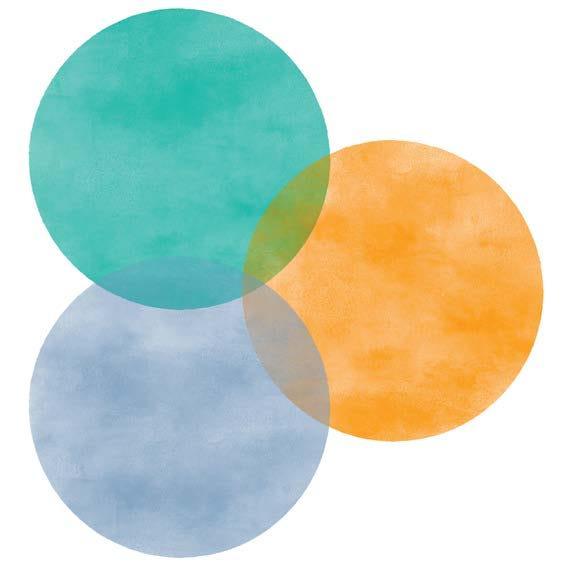
20 minute read
CHAPTER TWO
Organised Civil Society:
Redefining our Role and Relevance
Advertisement
OK, Morgan, many governments and businesses are proving incapable of facing the growing crisis and are contributing to its escalation. So, what does this mean now for civil society now?
That’s the big question, Manu. In this chapter we throw the spotlight on civil society and how we might begin to respond out of our core values and capacities to step up our role in catalysing, facilitating or supporting social change. We should not give up on government and business because without them nothing will change. But we need to learn to engage them differently.
We begin with a perspective on larger human society itself, on its shape and the fundamental roles of its actors in the spheres of economic, political and civil societies.
The Threefold Nature of Society
Human society can be seen as a dynamic, threefold relationship between three interacting and overlapping spheres of political, economic and civil societies, each with an ideal, essential role in society to fulfil.
Political Society: Equity
Economic Society: Mutuality
Civil Society: Freedom
These three spheres do overlap in places, where, for example, civil society may also provide economic development services or advocate for political change, or where businesses wield political power from out of their economic power etc. But each sphere has distinctive powers and unique societal roles to play, whether creatively or destructively.
THE THREE SPHERES OF SOCIETY: THEIR IDEAL QUALITIES AND PRIMARY ROLES
Political Society: Ensuring Equity. Governance for equity, justice, entitlements and security through law, human rights and regulation. State Institutions.
Economic Society: Cultivating Mutuality. Economic well-being through environmentally sustainable production, distribution and consumption of goods and services. Business and the Market.
Civil Society: Fostering Freedom. Vibrant and free participation of citizens in civic and cultural life, expressing the deeper voice of community. Informal and formal local, national and international organisations.
Nicanor Perlas, a Filipino activist, makes the case for the importance of the creative tension between these three spheres for the healthy development of society. He views civil society as the “cultural sphere” of society, concerned with “the development of full human capacities and the generation of knowledge, meaning, art, ethics, and a sense of the sacred. Culture is the realm that gives identity and meaning, that represents the deeper voice of community. This is the realm that develops the full human potential of individuals and organisations and enables them to be competent participants in the economy, political life, culture, and society at large.” (Perlas, 2000) Civil society organisations thus play a unique and deeply humanising role in the development of society. People are not passive Creative and destructive forces in society come alive where the three come together in their attempts to challenge and shape bystanders. There may be a each other. If, for example the State is failing to foster or defend shrinking of space for civil the institutionalisation of equal rights, for which it is primarily society, but this should not responsible, then civil society may step forward to prompt it to do so, as it does. Human history provides telling accounts of this be confused with shrinking dynamic relationship between these sectors. civic impulses and civic In recorded history these spheres have always been out of balance. forces for change. Early slavery and feudal-based societies were dominated by political society and then later, slavery and colonial, capitalist-based societies were dominated by economic society and its imperatives. This continues today with the domination of economic society, creating a more severe and growing imbalance between these spheres, resulting in the kind of crisis and dysfunction we currently experience. The dominance of the corporations and their profiteering through crass capitalism and their collusion with a supplicant political society, leading to the further exclusion of the most marginalised, to environmental degradation and climate change, is all coalescing into the existential crisis we all face today. Yet, paradoxically we have seen, in response to this imbalance, a rise in the mobilisation and power of civil society on an unprecedented scale. People are not passive bystanders. There may be a shrinking of space for civil society, but this should not be confused with shrinking civic impulses and civic forces for change. The threats to civil society these days have come precisely because it has started to grow, to find its feet and become a challenge to the powers of economic and political interests.
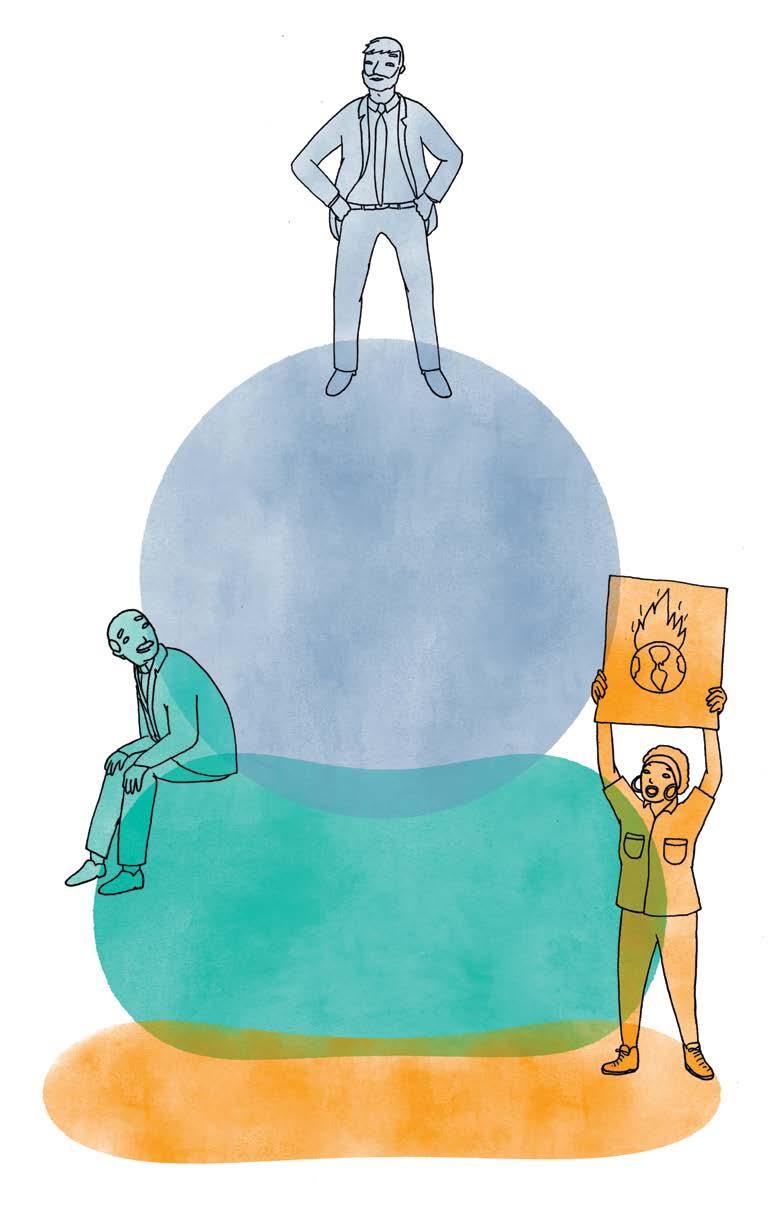
The many forms of organised civil society
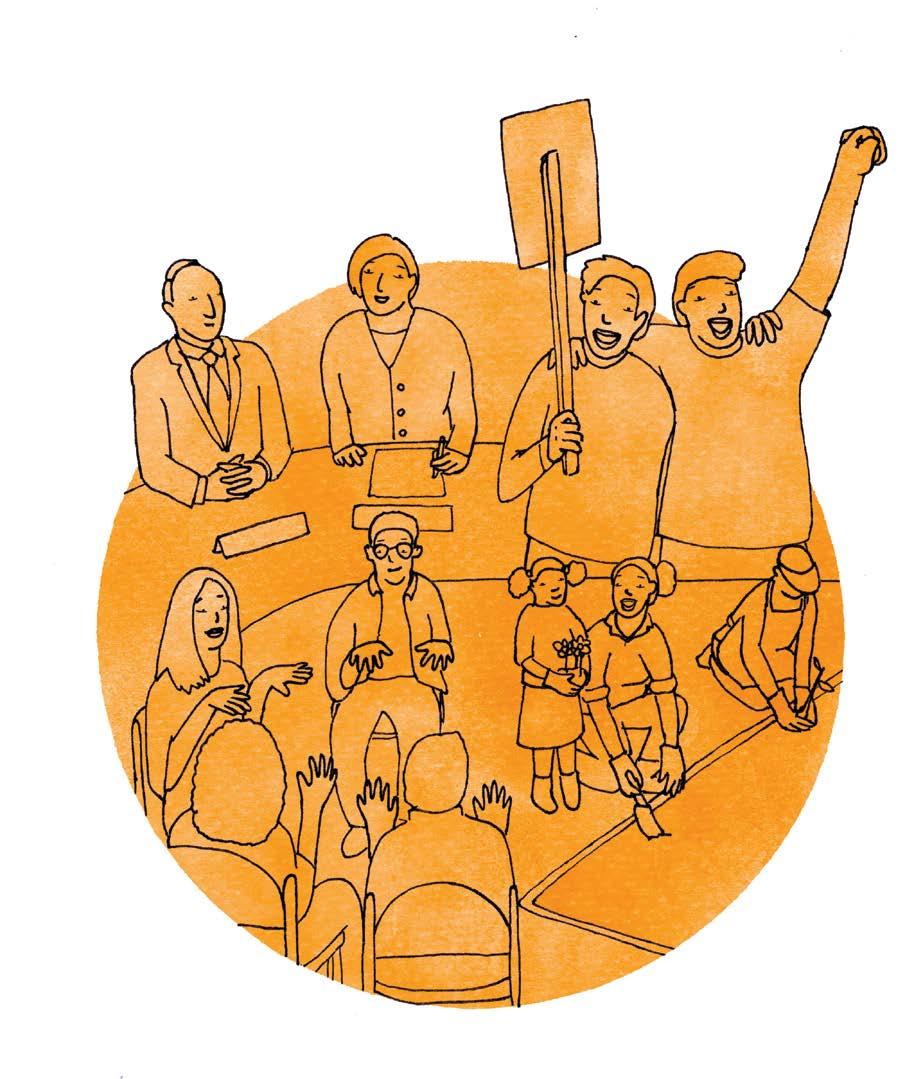
Civil society contains a vast array of organisations, from small to huge and from the very informal to the very formal. In this Guide, these are the kinds of organisational forms of Civil Society that we write about:
Community-based Organisations (CBOs). These are largely voluntary, often informal, and usually a neighbourhood response to local issues, accountable to their members. CBOs sometimes connect with each other to take on common campaigns or even to form wider social movements. Some may attract funding and start to formalise and even morph into NGOs, though at risk of losing their original mission. Their strength comes from being strongly rooted in authentic community.
Social Movements. Active citizens organising around particular issues form social movements, running initiatives like campaigns to use their collective power to seek more systemic social change. They may be coalitions of smaller CBOs or local movements. Also accountable to their members, they may operate locally, nationally or even internationally. They can form strategic alliances with other actors to enhance their power and some even enter into integrated change programmes with government and business, as equal partners. Their strength also comes from being rooted in community with the power of numbers behind them. Non-Governmental Organisations (NGOs) or Non-Profit Organisations (NPOs). These are more formal, professional, funded entities, often accountable to a Board of Trustees and required by the state and donors to be registered. Like social movements they may take local, national or international forms. Their strength lies in having a consistent, professional practice, able to offer reliable support to programmes of change, including social movements. Coalitions, Alliances and Campaigns. These are usually temporary organisations bringing together a variety of actors, like social movements and NGOs, around specific common foci, be it around a particular event or issue to advocate for progressive policy or to win or defend a particular right. NGO Platforms. These are associations of NGOs that come together to build common capacities, to defend common interests or to advance the common agendas of member organisations. They usually take on a national form and can, like Forus, be an international platform of platforms. We also speak of networks which is used interchangeably, referring to platforms or groups of CSOs formed to pursue collective goals that may be short or long term.

Holding up a mirror: Reflecting on the challenges for Civil Society Organisations
Contemporary challenges of CSOs arise from the process of organised civil society maturing and evolving, adapting itself to internal re-alignments and to increasingly complex external forces.
THE TORTUOUS PATHS TO CIVIL SOCIETY COLLABORATION
The limits of welfare and humanitarian aid: Many CSOs begin as CBOs or small NGOs, as a response to a local need, often as a welfare or humanitarian service to people needing support. Some may begin as a spontaneous expression of outrage following a breach of human rights. Sometimes governments welcome, endorse or support innovative local community initiatives, opening up new However, this is also often the point at which they realise the areas of service that they could even eventually take on more systematically and widely. Resource-constrained governments may simply not have the capacity or need to collaborate and organise resources and depend on CSOs and donors to fill the with others who are also working in the field, to give more weight to gaps. In some countries, governments see these initiatives as a useful way of abdicating their own responsibilities, especially those wanting to dismantle the Welfare State, as their advocacy and push for more part of effectively privatising their responsibilities. systemic changes. The shadow of a welfare or humanitarian response to the needs of the less fortunate is the entrenching of dependency, often deepening their marginalisation and poverty in unintended ways. In a way, communities, who are victims of poverty and marginalisation often become victims of the very organisations trying to help them, becoming dependent on that victimhood to be able to claim their next round of funding. Giving weight to rights-based advocacy. At some point many CSOs realise that they cannot continue providing welfare services in a sustainable way. Some of these may start to push for the State to take on the responsibility, either through advocating changes in the law or holding the State to existing laws. Here the language of practice may shift from “servicing needs” to “demanding rights”. The experience that CSOs have in providing services means that they can speak with some authority and legitimacy about the issues. However, this is also often the point at which they realise the need to collaborate and organise with others who are also working in the field, to give more weight to their advocacy and push for more systemic changes. This work may be viewed as a threat by the government and the initiatives of CSOs are sometimes impeded or repressed.
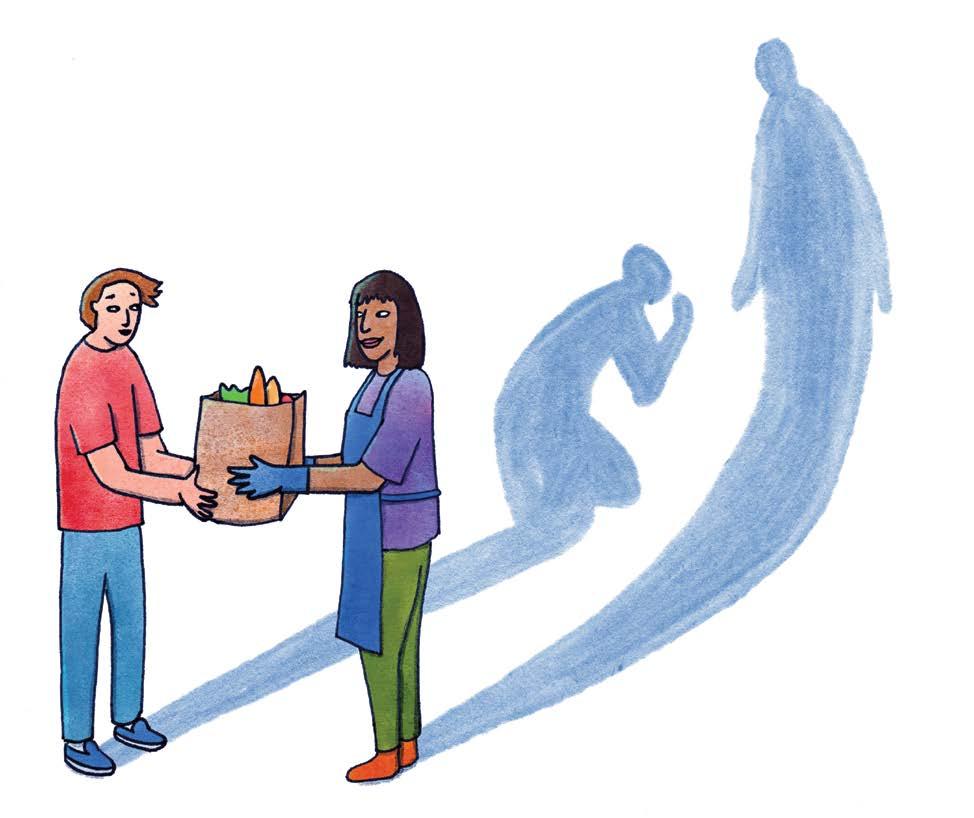
Teaching people how to fish. NGOs often take another route: that of funded capacity development. The typical route here is “helping people to help themselves”, “teaching them how to fish”, training them in technical skills to reduce their dependency on outsiders. This represents a major part of funded NGO work, in almost every field imaginable, whether education, agriculture, health etc. However, it has only been a recent phenomenon that NGO capacity-builders have realised that many communities already possess valuable hidden experiences and skills that need to be unlocked before the skills-training they bring becomes useful and that many can teach each other. Leading social movements like Shack Dwellers International have long used community exchanges as a major approach to skills sharing and development with the added benefit of building solidarity between communities in the process. Right of access to the river. But “teaching people how to fish” does not help if they do not have the right to fish in the river or if they are in conflict with others over limited resources. Rights that enable fair and equal access to resources and opportunities, that enable new capacities to be used, must also be achieved or people will be left feeling defeated. This is part of a systemic approach. Development in Action: Capacity development has particular bite when supporting and accompanying campaigns and movement-building, when there is strong will for social change in people and with that a strong will to develop themselves. Teaching people “how to fish” does not help if they do not have the right to fish in the river or if they are in conflict with others over limited resources.
NGOS AND SOCIAL MOVEMENTS – A SURREPTITIOUS SYMBIOSIS
As fascinating empirical research from Marlies Glasius and Armine Ishkanian (2014) shows, there is often a “surreptitious symbiosis” that exists between social movements and NGOs. It remains virtually impossible to engage in the kind of sustained activism that can bring about long-term social change without interacting, at least in part, with funding and governance structures. Although the activists who spearheaded the Arab uprisings or Occupy protests often reviled NGOs in public, behind the scenes, they often drew on their resources, used their meeting spaces, their printing services, and their legal and research expertise. In countries like South Africa and Brazil, characterised by recurring spontaneous grassroots mobilisation and dissent (like protest sparked by poor servicedelivery, racial discrimination or gender-based violence), some NGOs have seen their role as providing ongoing professional and organisational support for social movements that also connect with their aims.
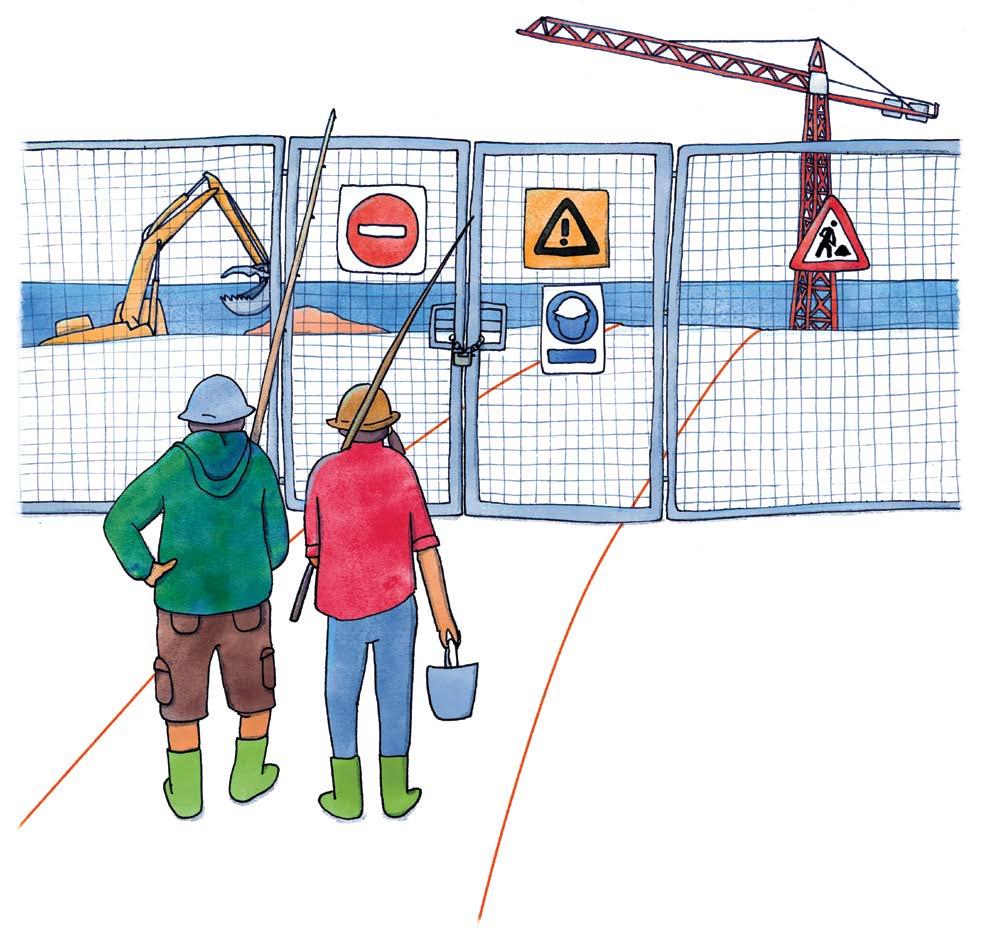
Both sides can benefit, with grassroots activists able to access funding, technology and specialised professional support (e.g., from lawyers and researchers) for their campaigns from NGOs, and NGOs, many staffed by activists, reconnecting with their deeper purposes and possibly receiving an injection of legitimacy.
THE DOWNSIDES OF DONOR-DRIVEN DEVELOPMENT
“We have become slave to our brands, LogFrames, donors and our growth strategies. We have been co-opted and corralled by states and funders, signing away our independence and voice… We work in siloed projects designed to alleviate the consequences of poverty and exclusion, rather than to tackle structural causes.”
Dhananjayan Sriskandarajah
Donor-power is a major shaper of development and a source of great tension. In essence, money is power and the way it is brought, distributed and accounted for shapes and In many ways the practice of many colours almost everything. Donors, who are themselves donors has become more about managing mistrust than offering often subject to the agendas of their back donors, exert an extraordinary influence over social change development dynamics, often in ways that they are genuine solidarity. blind to. Authentic, bottom-up priorities and impulses for change are often ignored or distorted because they don’t fit donor priorities, and thus “development” and “advocacy” become donor-driven. Even if there is genuine donor support for community priorities and common interest in supporting authentic social change, this is too often spoilt by managerialist planning, compliance and accountability practices, based on simplistic understandings of how change happens. In many ways the practice of many donors has become more about managing mistrust than offering genuine solidarity.
SHRINKING SPACE FOR CIVIL SOCIETY
Civil society is currently under threat in many parts of the world. CSOs, specifically those working with advancing the protection of human rights or of the environment, currently face severe challenges, and increasingly restrictive laws, violence, harassment and imprisonment. The
Forus International Scoping Study of National NGO Platforms’ Experiences in Promoting an Enabling Environment has confirmed this tendency particularly in Southern countries. See Forus (2021). Legislative changes in a number of countries have undermined the independence of civil society actors and restricted their capacity to function effectively. Defamation laws, criminalisation of previously permitted legitimate activities, freezing bank accounts, bans on organisations funded by foreign sources, branding civil society organisations as foreign agents, and strict media reporting regulations are among just some of the legal measures that limit, or in some cases entirely suppress, civil society.

These attacks may well be because CSOs are proving themselves to be a force to be reckoned with. But they still need a collective response. The Forus (2021) report argues that “formal and informal collaboration between coalitions, NGOs, social movements and groups that represent communities still requires strengthening to face together challenging disabling conditions and attacks”. These responses will have to show a strategic maturity that does not strengthen the opposing forces but works creatively to circumvent or dissolve their power. Civil society has so many unrecognised collective powers, in its numbers, its diversity and the sheer potency of its love for the people, for life and for humanity, that need to be revealed, strengthened and put to use.
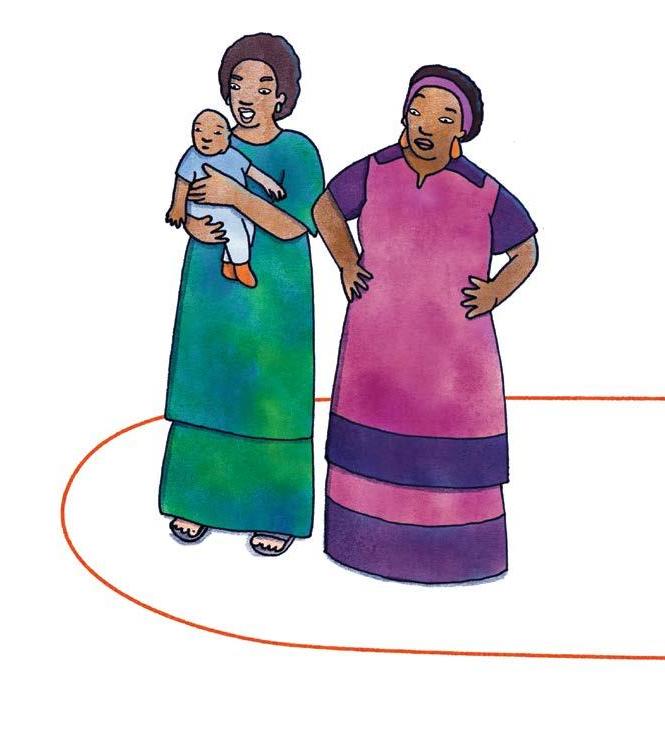
Weaving in new relationships and roles
In this section we showcase three examples of how organised civil society is bringing its agency into engagement with government and the private sector, weaving in new relationships and roles of collaboration.
EXPANDING POLITICAL SPACE: AN EXPERIENCE OF CIVIL SOCIETY DEFENDING COMMON STRUGGLES
By Akmal Ali – Pacific Islands Association of Non-Government Organisation (PIANGO) PIANGO strives to be the voice of our national NGO platforms at regional and international levels. Through the national organisations the network escalates development and transformation issues from grassroots levels and brings them together as a regional voice and escalates them to a global level. Within the region, there are countries that are fighting the effects not only of nuclear proliferation, climate change but also colonisation. So, the decolonisation agenda is huge for us. Whilst other countries are struggling with their own issues, we are still fighting colonisers.
We drive, coordinate and hold a space for the diversity of development and transformation debates and dialogues, as well as for collective action by civil society. PIANGO has been supporting the campaign against nuclear proliferation and as a result ten Pacific Island countries have signed the treaty and it has become an international law. When the Paris Agreement was formed, as an active civil society partner, we have been participating and contributing to COP dialogues and have influenced the climate change agenda in the region.
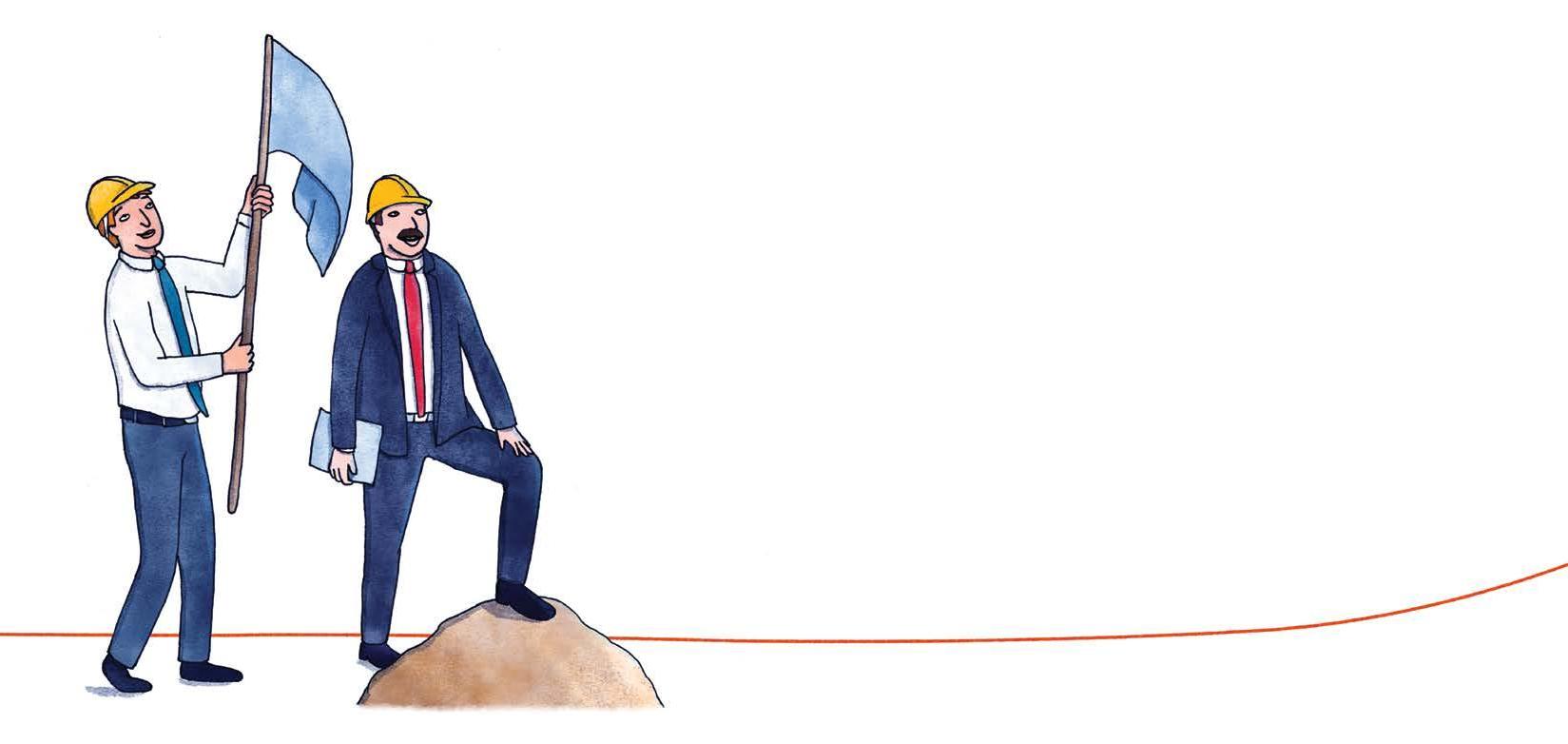
By Teresa Casala, de la red Encuentro de Entidades no Gubernamentales para el Desarrollo (EENGD), Argentina
During the economic crisis due to the pandemic in Argentina, the state became paralysed. Most local governments collapsed, unable to provide services to the people. The different civil society formations, social movements, networks and alliances, stepped up to play a critical role in service provision to communities, taking over the role of local and provincial governments. Their relationship with the authorities became less confrontational as they resorted to dialogue and consensus instead of only confronting and challenging. During Covid-19 times these complimentary roles have grown stronger. The pandemic has forced them to collaborate around certain activities like food relief, education and informal traders (mostly women). We become aware of the importance of our monitoring role. For this reason we have strengthened the platform Pampa 2030 PLATAFORMA ARGENTINA DE MONITOREO PARA la AGENDA It is the time to position ourselves 2030 (National Platform for Monitoring 2030 Agenda), that was created in 2015 at the initiative of the trade unions. in the paradigm of “care”, to move Pampa 2030 is composed of trade unions, faith-based from individualistic and personal organisations, foundations, people’s movements, feminist “ego” to the “eco”, understood as movements and academic institutions among others, to collectively monitor the implementation of the Agenda empathetic listening with others, focused on the fulfilment of the SDGs. allowing us to fruitfully collaborate The trade unions play a critical role in helping workers to towards common objectives. represent and speak with one voice on matters affecting them directly, engaging the state in a different way from social movements. We have strong social movements, using mass action and engaging the state in different ways. They operate more in the public spaces, effective in putting pressure on the state by being more confrontational and mainly using protests as a form of engagement. The issue of leadership within these social actors is interesting. They are often led by charismatic and powerful personalities. Sometimes the leadership of these social movements do not always value working together with different organizations, losing opportunities that could optimise their impact. Thus, the full value of these networks is not realised both at local, national and global levels. If they were to cooperate more and work together, it could form a very powerful confederation. Civil society organizations are currently working on a comprehensive regulatory framework that would help to strengthen the identity of social sector organisations and networks. At this point we are working towards one legal and fiscal framework and a statute of the socio-community worker that is being agreed for its approval. We seek the recognition of alliances between civil society organizations and communities, which will allow all contributions to be appreciated. It is the time to position ourselves in the paradigm of “care”, to move from individualistic and personal “ego” to the “eco”, understood as empathetic listening with others, allowing us to fruitfully collaborate towards common objectives.

A CIVIL SOCIETY NETWORK ENGAGES WITH THE GOVERNMENT IN NIGERIA
By Oyebisi, Babatunde Oluseyi – Nigeria Network of NGOs
In Nigeria we have a government that works closely with the private sector, that often makes decisions that are not in the best interests of the people. As civil society we see it as our responsibility to respond to such challenges and fight to bring our voice into the decision-making processes. To participate in such decision-making process, we recognise the importance of understanding the dynamics within the political space. We need to understand the political context as well as the critical issues that impact our work. It is important to mention that the relationship civil society has with the government is different to that between the government and private sector; theirs is a closer relationship, with the private sector being the first to be consulted on critical issues facing the country. When engaging with government, it is important to be aware of the power that civil society also has; ours is the power of the collective. Our power also lies in our competencies and practices; our abilities in organising, mobilising, conscientising and building the voice of citizens. These competencies should not be taken lightly. They give us power! When Covid-19 broke out, we realised that we could not face this crisis alone. We were forced to engage with the government on the country’s response to the crisis. Our contribution came in the form of research. Civil society conducted an analysis of its impact on our sector and looked into how organisations were responding to the crisis. We commissioned research, documenting the situation and gathering evidence to provide an accurate picture of what was happening on the ground. The government was able to draw on this research to inform national responses and community level interventions. When engaging with government, it is important to be aware of the power that civil society also has; ours is the power of the collective.
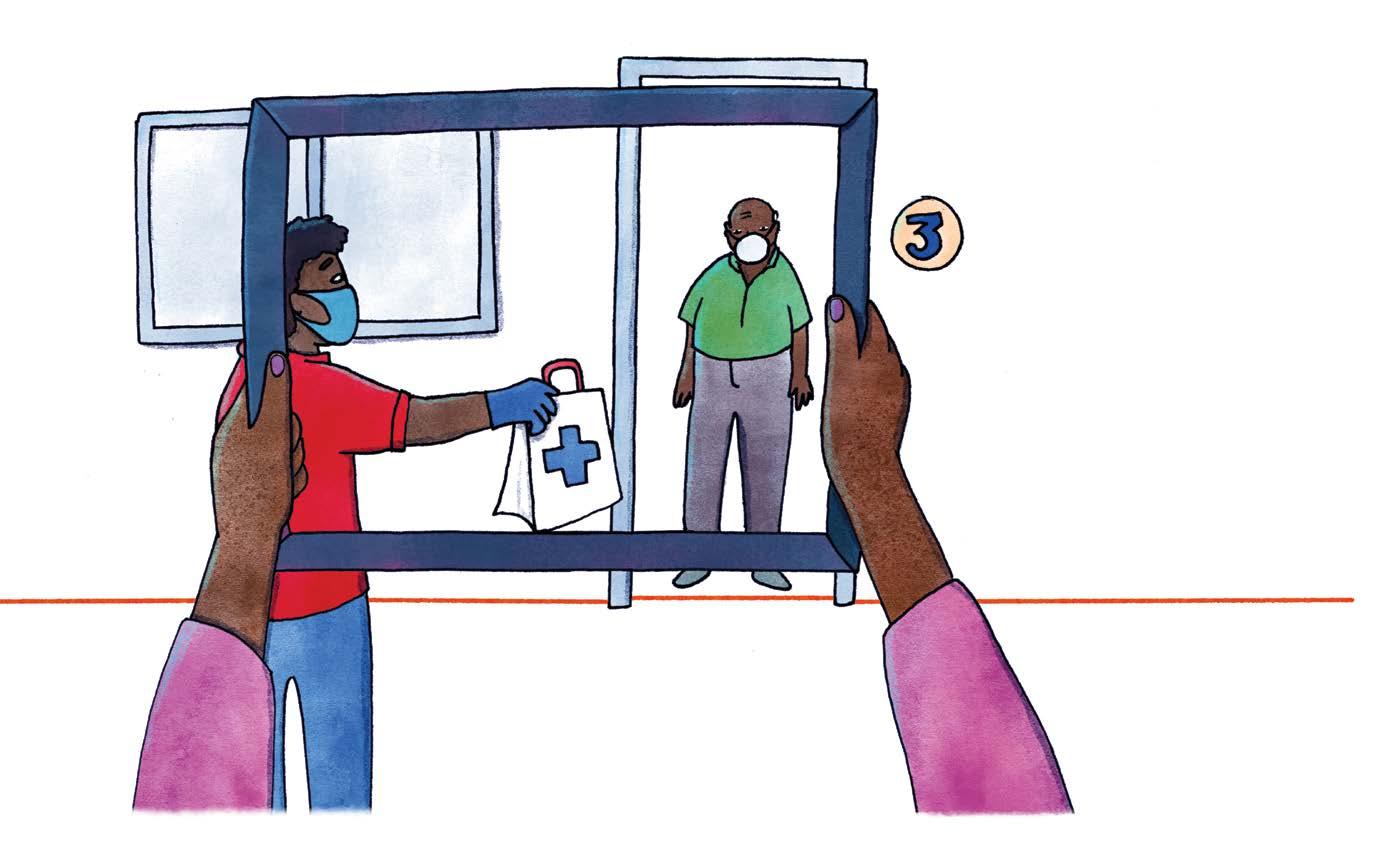
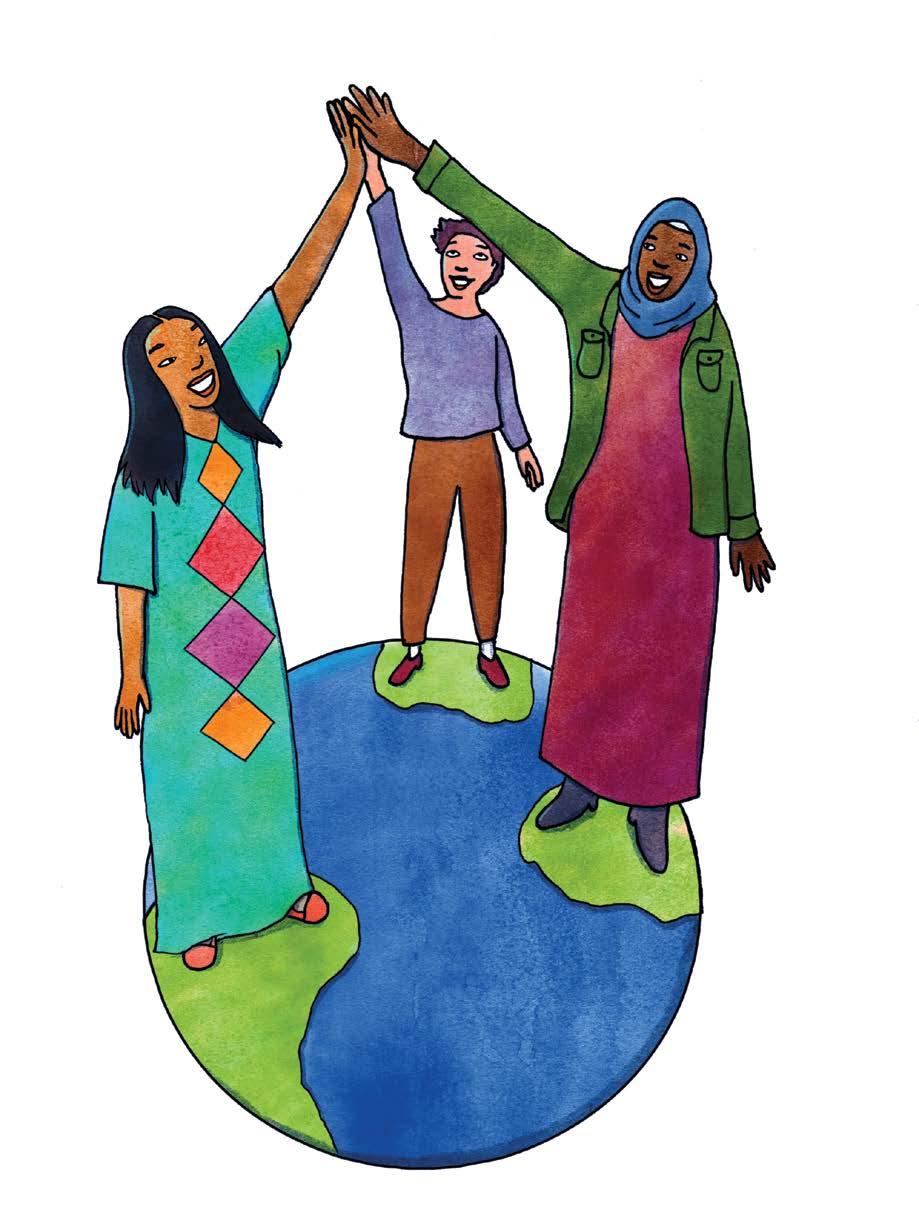

“One of the ironies of the moment of world history that we are living in, is that precisely at a time, when many countries were securing Electoral Democracy, for the first time, or after a long hiatus… real power around a range of issues was actually shifting from the national to the global levels.”
Kumi Naidoo
It is a clear and hopeful sign that in so many countries we are learning to engage with local government and business in many new ways. But a bolder attitude and response is sorely needed because what needs to be addressed is also a global crisis. We have the UN 2030 Agenda for Sustainable Development as a vehicle to push reluctant governments and corporations to play their part, but that Agenda will be weakly implemented if we do not engage it differently. Do CSOs have a need to simply follow and support Agenda 2030’s dictates or do we need to engage to expand the debate around its implementation? Many are feeling that there has not been sufficient clarity and prominence given to human rights in the Sustainable Development Goals, which means that gains made may be short-lived or barely implemented. Is there a more political and influencing role we need to carve out for ourselves to ensure that the SDGs are meaningful to communities around the world? How could the SDGs be used by civil society as a tool to drive even more ambitious demands? For many NGOs and NGO Platforms this will require a shift away from a role as mere service providers to that of facilitators and supporters of broader civil society organisations, especially social movements. Through this, marginalised communities themselves can engage in dialogue and negotiations to claim their rights and enhance their collective assets and capabilities, locally, nationally and globally. Real power lies in mobilised local communities, coalescing into social movements and other kinds of CSOs. But the question is how do the deep and diverse powers of civil society, rooted in locally mobilised communities, get transformed into national and global forces for change? We need to both globalise local struggles and localise global struggles.
If you think about it, many democratic gains over the past hundred years or so started locally, became national and eventually spread globally. The right of workers to organise, the eight-hour working day and women’s right to vote were all claimed and won locally before becoming national and international rights. Although the context, issues and crises are different today, the possibilities for civil society to impact national and global change still exist. In fact, the next chapter has some stories that illustrate how this is happening as we speak!






